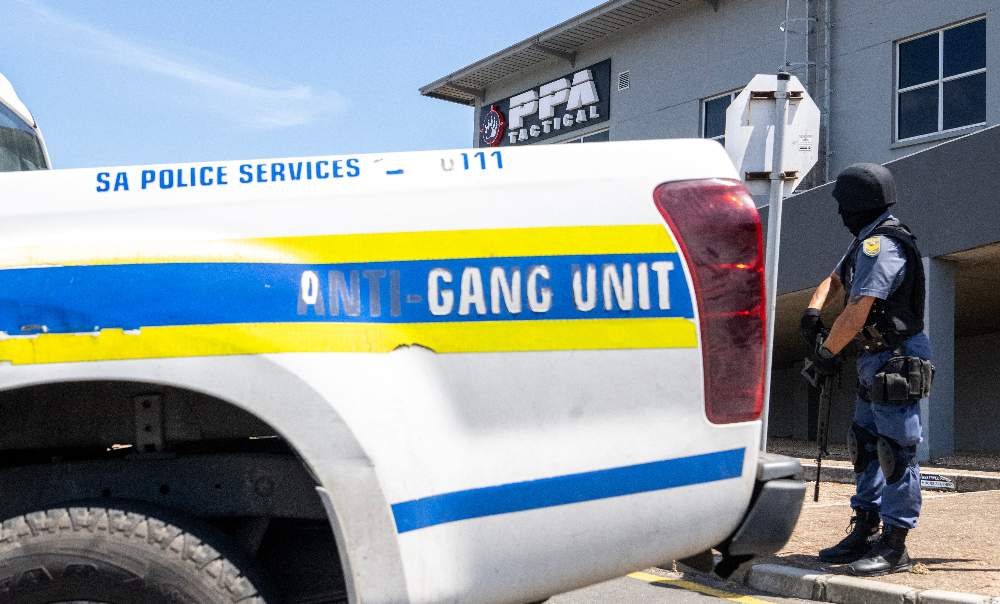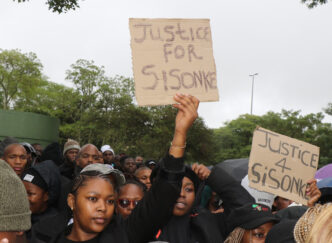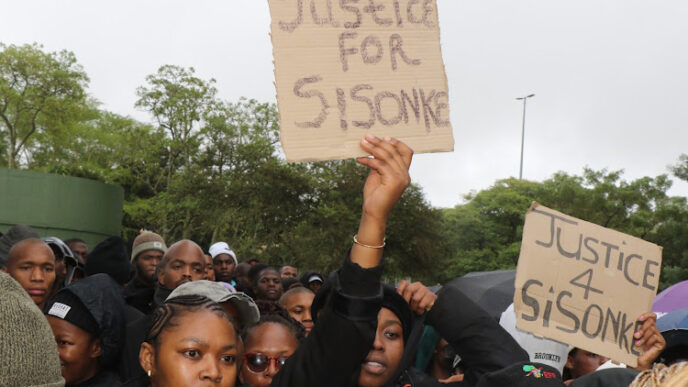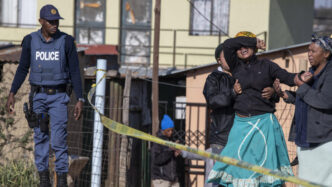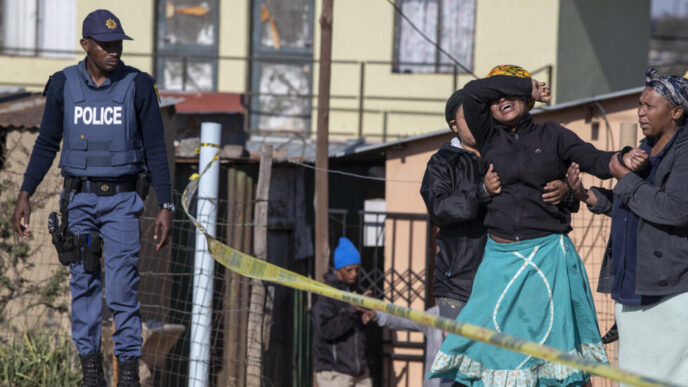Westbury residents launched a violent attack on members of the Anti-Gang Unit following the arrest of a man suspected of drug-related offenses, sparking clashes that left officers injured and vehicles damaged, according to reports. The confrontation, which unfolded late Tuesday evening, began when officers attempted to apprehend the suspect near a local tavern. Eyewitnesses described a chaotic scene as a crowd gathered, hurling stones and debris at police, forcing officers to retreat temporarily. “They just started throwing everything at us—we had no choice but to defend ourselves,” said one officer.
The incident underscores deepening distrust between law enforcement and communities like Westbury, where residents often accuse police of heavy-handed tactics and selective enforcement. Local leaders have long criticized the Anti-Gang Unit for operating without sufficient community engagement, citing a pattern of raids that disproportionately target lower-level suspects while leaving organized crime networks intact. “This isn’t just about one arrest—it’s about years of frustration,” noted a community organizer. “People feel criminalized, not protected”.
Police spokesperson Captain Sipho Mthethwa confirmed the suspect was detained but declined to comment on allegations of excessive force, stating only that an internal review would assess the operation’s conduct. Meanwhile, social media footage circulating online shows officers scrambling to shield their vehicles from flying debris, with one patrol van sustaining shattered windows. Authorities have since arrested six individuals for public violence, though tensions remain high as residents demand accountability.
The clash follows a broader trend of anti-police sentiment in Gauteng townships, where similar incidents have erupted over perceived overreach or corruption. In May 2025, a man was fatally shot during a raid in Soweto, prompting nationwide protests and calls for reform. Analysts warn that without systemic changes—including greater transparency and community collaboration—such confrontations risk escalating further. “Policing models rooted in occupation rather than partnership will keep fueling these cycles,” said a Pretoria-based criminologist.
As investigations proceed, the incident reignites debates over South Africa’s approach to crime-fighting in marginalized areas, where poverty, gangsterism, and unemployment create volatile environments. For Westbury residents, the question remains whether justice will address both the root causes of unrest and the immediate grievances of a community caught between violence and enforcement.

